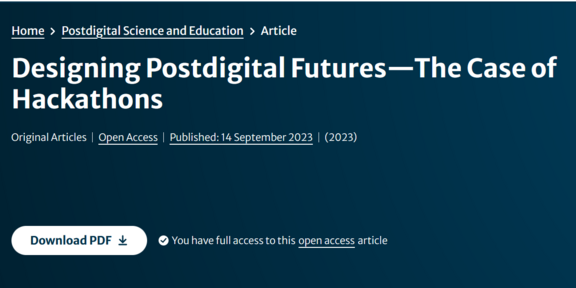"Designing Postdigital Futures-The Case of Hackathons" has been published.

Used in the context of innovation-driven economies and civil society, hackathons are a good example of collaborative postdigital design processes and their focus on futures and the realization of new ideas. Hackathons are a widespread organizational form of designing the future in which digital solutions (such as apps, websites) are preferred. What becomes questionable in the process of designing, however, is the social form of the future. In our case study, we ask which futures are being designed and by whom. While empirically, these questions are often answered together, we disentangle them in our analysis of online announcements of hackathons. We show how a feasible, designable, and achievable future is imagined through practices of problematization and scaling. We demonstrate corresponding models of subjects that are preferred for designing the future. With our praxeological analysis, we aim to contribute to an understanding of the micropowers of designing postdigital futures. While in principle, ‘everyone’ is invited to participate in the design process at hackathons, the announcements already show that only certain participants are desired, and only certain kinds of futures are imaginable through hackathons.



